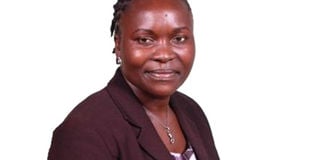Prime
Understanding women’s experience with media is crucial for progress

Emilly C. Maractho
What you need to know:
- It may help, for talk show hosts and producers to pay attention to drivers of participation.
Ms Winnie Byanyima, the executive director of UNAIDS, recently asked NBS television, very nicely to commit to no more Manels (all male panels in talk shows), which she said should be a thing of the past, in a tweet that gathered hundreds of likes in a short time. “You are excluding Ugandan women from political debates, perpetuating a stereotype that men are ‘superior’ politicians to women, and denying your viewers diverse perspectives,” she said.
Mr Simon Njala Kagwa of NBS replied Ms Byanyima in exactly the way I was expecting someone at NBS television to, “Kindly offer us the names of the ladies who can participate in these debates.” This was the response I waited for, because I have been told that in countless interviews not by Mr Kaggwa, but several others. This response, is often a not so subtle way to say ‘there are no women who can meaningfully participate in national debates, whose perspectives would be considered interesting’.
I must mention, that one talk show producer at NBS has reached out to me three times. Twice I had travelled out of town and once had a meeting I had convened. So for very good reasons, I was not able to accept those invitations.
I want to believe, there are many men who will most likely not be able to join a programme for one reason or another. But of course, it is more significant when women cannot.
Media studies have demonstrated ways in which women are empowered and disempowered by the media. Decades of documenting negative portrayal of women, has highlighted what the key issues are- from newsroom cultures, nature of discursive programmes, to structural barriers that women may face in making participation decisions.
Women’s perceived scant attention to public issues in talk shows has tended to reinforce the idea that women are poor participants in these programmes and have failed to utilise these platforms. I hear that a lot, in trainings of journalists I conduct. Often, this reasoning fails to appreciate why women may choose not to be participants in these programmes.
It may help, for talk show hosts and producers to pay attention to drivers of participation. My research has shown that there are several drivers of choice of guests, many of these are gendered.
The nature of the programme matters a lot – from the time of the programme, the issues of discussion, the skill of the presenter in moderating a good discursive programme, the framing of the issues in discussion, the politics of the day, the balancing of guests and so on.
Very often, we rush to conclude that women are the problem, but there are numerous and often complex factors at play. Many of these are bound to affect women’s decisions to participate, and most of them emanate from the media, not women. There is often an undue emphasis placed on the personality of the female guests rather than their professionalism.
I have previously argued, that ‘despite the extension of free market principles, the media remains very politicised in the broad sense of the term’. People who believe that women are not good politicians then conclude that there are no women to participate in programmes that lean on politics and public policy.
Media (talk show) content producers today should engage with who their audience is and why that matters. Some content producers fail to appreciate that many women do not engage with their products, and move on as if it does not matter.
The problem for media managers is that some of these women now make decisions about advertising revenue, media relations and media policy or regulation. Media managers can no longer treat the absence of women in media products casually.
My research has shown that where there is in-house policy on gender sensitivity, ethical journalism, and diversity, journalists who only yesterday said there were no women who can participate in discursive programmes or provide expert opinion, suddenly found them. Management’s commitment to diversity always produces meaningful results. The media thus affects public opinion of women by reproducing dominant and unjust social order.
Ms Maractho (PhD) is the Director of Africa Policy Centre and Senior Lecturer at Uganda Christian University.




